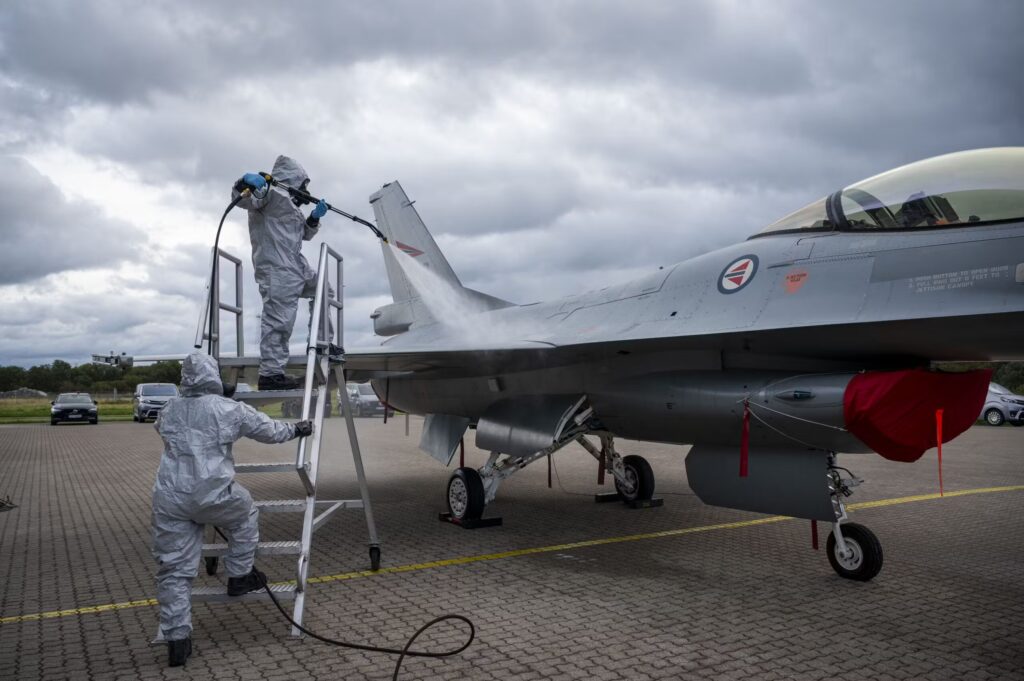Royal Air Power specialists have taken half in NATO’s predominant air-focused counter-chemical, organic, radiological and nuclear (C-CBRN) train in Norway, geared toward strengthening the Alliance’s skill to maintain operations in hazardous environments, in accordance with the RAF.
Train Poisonous Journey, hosted by the Royal Norwegian Air Power at Ørland Air Base, introduced collectively C-CBRN specialists from throughout NATO to check and refine how member nations reply to chemical or radiological threats.
RAF personnel led supply of the Federated Air C-CBRN Functionality (FACC), designed to reinforce interoperability and maintain air operations operating underneath contamination circumstances.
Corporal Hemming, from the Defence Rehabilitation Centre in Loughborough, stated the train “allowed us to showcase our adaptability in difficult environments; from overcoming the climate to modifying decontamination drills to guard our NATO colleagues while enhancing our personal C-CBRN strategies.”
The UK contingent included members of the RAF Power Safety Centre’s Air Counter-CBRN Crew, medical and help pressure parts, RAF Regiment Gunners, the RAF Centre of Aviation Drugs and RAF Hearth and Rescue Providers.
Air Specialist Malkin, an RAF Regiment Gunner with the Air CBRN Safety Group, stated: “Working alongside a number of nations throughout Train Poisonous Journey has been a extremely beneficial expertise. Our Chemical Reconnaissance staff was employed successfully by the Process Power Commanders, notably in help of casualty evacuation operations, which mirrored positively on the UK contribution.”

